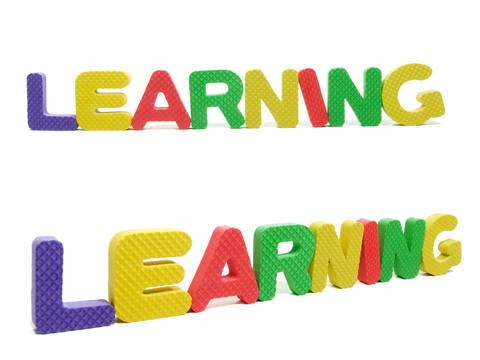 We have all heard statements like, “He is a visual learner,” or “She is better at left-brain tasks,” or “That person is an analytical thinker rather than a global thinker.” All these descriptions make use of categories called ‘learning styles’. They all assume that individuals have a predisposition to particular ways of learning, and that if teachers are made aware of this, they can adjust their teaching to enhance learning.
We have all heard statements like, “He is a visual learner,” or “She is better at left-brain tasks,” or “That person is an analytical thinker rather than a global thinker.” All these descriptions make use of categories called ‘learning styles’. They all assume that individuals have a predisposition to particular ways of learning, and that if teachers are made aware of this, they can adjust their teaching to enhance learning.
Over the last 40 years, in order to help teachers identify student learning styles, questionnaires known as learning style inventories have been developed and sold as commercial products. As well as inventories, many products also include suggestions for working with children who have specific learning styles.
The theory and practice of learning styles has generated great interest and controversy over the past twenty years and more. As a result, in 2003, an arm of the British government, the Learning and Skills Development Agency, commissioned a team to look at whether there was evidence to support the use of learning styles in schools.
Led by Prof. Frank Coffield of the Institute of Education at the University of London, the team’s findings received wide media attention. “If your child comes home from school and says ‘I’m a visual (or auditory or kinesthetic) learner’ be concerned. Be very concerned,” wrote Phil Revell in an article to the Times. “There is little evidence that approaches based on learning styles and learning cycles are valid.”
Article continues below...
.
Edublox Multisensory Cognitive Programs
Fundamental solutions to learning deficits —
“It’s been six months … and already she is one of the top performers in her class”
I was told that my daughter would never make it in a mainstream school and that she had to be transferred to a remedial school... She is getting 6's and 7's and she is in mainstream school. Continue Reading
Zan’s Mom, South Africa Edublox Online Tutor December 21, 2013
.
Revell cited Coffield’s findings on the validity of the 13 most widely used theories of learning style and learning cycle. This included VAK (visual auditory kinesthetic learning styles) which is the theory most widely used in the UK. Coffield’s recommendation was that their use be discontinued. Similarly, the GSC (Gregorc’s style delineator of four learning styles) learning style delineator was found to be “theoretically and psychometrically flawed”.
Recent brain research also brings into question some long-running ideas about preferred ‘learning styles’, say Horne and Wootton in their book Training Your Brain: “Edelman found that, irrespective of a student’s preferred learning style, it was readily possible to help students to involve those parts of their brains that students or pupils normally preferred not to use.
“Restak reported that the brain made a better job of processing sensory input when several of its systems were working simultaneously. In short, brain research does not appear to support the idea that quality, persistence, extent or depth of learning are achieved by allowing the learner to use only their preferred learning style. What does seem to be important is that learning activities should stimulate several parts of the brain simultaneously since this promotes the increased neural interconnectedness associated with the development of increased cognitive capacity. Repetition and practice also seem to be important since they bequeath thickening of the myelin insulation on the axons of the neurons and this favors future thinking speed and accuracy.”
Writing in the Times Educational Supplement Magazine (29th July 2007), Susan Greenfield, director of the Royal Institution and a professor of pharmacology at Oxford University, said that “from a neuroscientific point of view [the learning styles approach to teaching] is nonsense”.
“Humans have evolved to build a picture of the world through our senses working in unison, exploiting the immense interconnectivity that exists in the brain,” she told the Sunday Telegraph of London. “It is when the senses are activated together – the sound of a voice is synchronization with the movement of a person’s lips – that brain cells fire more strongly than when stimuli are received apart.
“The rationale for employing VAK learning styles appears to be weak. After more than 30 years of educational research into learning styles there is no independent evidence that VAK (visual, auditory, kinesthetic), or indeed any other learning style inventory, has any direct educational benefits.”
.

